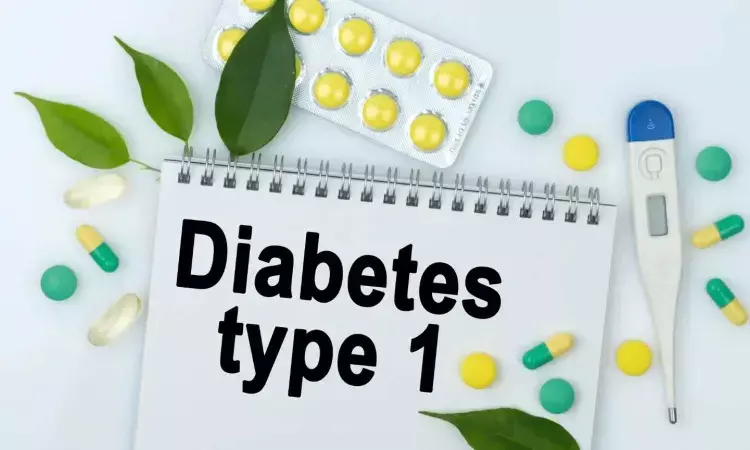- Home
- Medical news & Guidelines
- Anesthesiology
- Cardiology and CTVS
- Critical Care
- Dentistry
- Dermatology
- Diabetes and Endocrinology
- ENT
- Gastroenterology
- Medicine
- Nephrology
- Neurology
- Obstretics-Gynaecology
- Oncology
- Ophthalmology
- Orthopaedics
- Pediatrics-Neonatology
- Psychiatry
- Pulmonology
- Radiology
- Surgery
- Urology
- Laboratory Medicine
- Diet
- Nursing
- Paramedical
- Physiotherapy
- Health news
- Fact Check
- Bone Health Fact Check
- Brain Health Fact Check
- Cancer Related Fact Check
- Child Care Fact Check
- Dental and oral health fact check
- Diabetes and metabolic health fact check
- Diet and Nutrition Fact Check
- Eye and ENT Care Fact Check
- Fitness fact check
- Gut health fact check
- Heart health fact check
- Kidney health fact check
- Medical education fact check
- Men's health fact check
- Respiratory fact check
- Skin and hair care fact check
- Vaccine and Immunization fact check
- Women's health fact check
- AYUSH
- State News
- Andaman and Nicobar Islands
- Andhra Pradesh
- Arunachal Pradesh
- Assam
- Bihar
- Chandigarh
- Chattisgarh
- Dadra and Nagar Haveli
- Daman and Diu
- Delhi
- Goa
- Gujarat
- Haryana
- Himachal Pradesh
- Jammu & Kashmir
- Jharkhand
- Karnataka
- Kerala
- Ladakh
- Lakshadweep
- Madhya Pradesh
- Maharashtra
- Manipur
- Meghalaya
- Mizoram
- Nagaland
- Odisha
- Puducherry
- Punjab
- Rajasthan
- Sikkim
- Tamil Nadu
- Telangana
- Tripura
- Uttar Pradesh
- Uttrakhand
- West Bengal
- Medical Education
- Industry
Teplizumab Shows Promise in Preserving Beta-Cells in Early Type 1 Diabetes: PROTECT Trial Results

In a recent study, researchers have found that early administration of teplizumab, marketed as Tzield, may help preserve beta-cells in individuals recently diagnosed with Type 1 Diabetes (T1D). The findings from the randomised PROTECT trial reveal encouraging results that could potentially impact the management of this autoimmune disease.
This study was published in The New England Journal Of Medicine by Eleanor Ramos and colleagues. The PROTECT trial enrolled 328 patients between the ages of 8 and 17, who were recently diagnosed with clinical-stage 3 T1D. These patients were randomly assigned to receive teplizumab or a placebo for two 12-day courses, spaced 26 weeks apart. The primary objective was to determine the drug's effect on the preservation of beta-cell function and C-peptide levels in these patients.
Key Findings:
- Beta-Cell Preservation: Individuals who received two courses of teplizumab experienced a 59.3% reduction in the loss of beta-cell function compared to those who received a placebo. The teplizumab group showed higher stimulated C-peptide levels at week 78, with a statistically significant least-squares mean difference of 0.13 pmol/mL (95% CI 0.09-0.17, P<0.001).
- Peak C-Peptide Maintenance: An impressive 94.9% of teplizumab recipients maintained peak C-peptide levels at or above 0.2 pmol/mL, a significant improvement compared to the 79.2% in the placebo group.
- Challenges in Lifestyle and Disease Management: Despite these promising results in preserving beta-cell function, the study did not find a measurable benefit in insulin dose requirements, glucose control, or a reduction in hypoglycemia events. The burden of the disease and the patient's overall quality of life did not appear to change significantly as a result of the treatment.
The PROTECT trial's results indicate that teplizumab could offer a viable approach to preserving beta-cell function in individuals recently diagnosed with T1D. The observed benefits in maintaining C-peptide levels are significant as they are associated with improved long-term outcomes. While the treatment did not lead to improved disease management or a reduction in insulin requirements, it represents a crucial step in addressing the autoimmune attack on beta-cells in T1D.
Teplizumab, approved in 2022 for individuals with preclinical T1D, has opened new avenues for the management of T1D by targeting the autoimmune response. Challenges remain in identifying candidates who are at the right stage of the disease for the treatment to be effective and ensuring close monitoring and control during the first year post-diagnosis. Further real-world pragmatic studies may help address these questions and expand the use of teplizumab in clinical practice.
Reference:
Ramos, E. L., Dayan, C. M., Chatenoud, L., Sumnik, Z., Simmons, K. M., Szypowska, A., Gitelman, S. E., Knecht, L. A., Niemoeller, E., Tian, W., & Herold, K. C. Teplizumab and β-cell function in newly diagnosed type 1 diabetes. The New England Journal of Medicine,2023. https://doi.org/10.1056/nejmoa2308743
Dr Riya Dave has completed dentistry from Gujarat University in 2022. She is a dentist and accomplished medical and scientific writer known for her commitment to bridging the gap between clinical expertise and accessible healthcare information. She has been actively involved in writing blogs related to health and wellness.
Dr Kamal Kant Kohli-MBBS, DTCD- a chest specialist with more than 30 years of practice and a flair for writing clinical articles, Dr Kamal Kant Kohli joined Medical Dialogues as a Chief Editor of Medical News. Besides writing articles, as an editor, he proofreads and verifies all the medical content published on Medical Dialogues including those coming from journals, studies,medical conferences,guidelines etc. Email: drkohli@medicaldialogues.in. Contact no. 011-43720751


